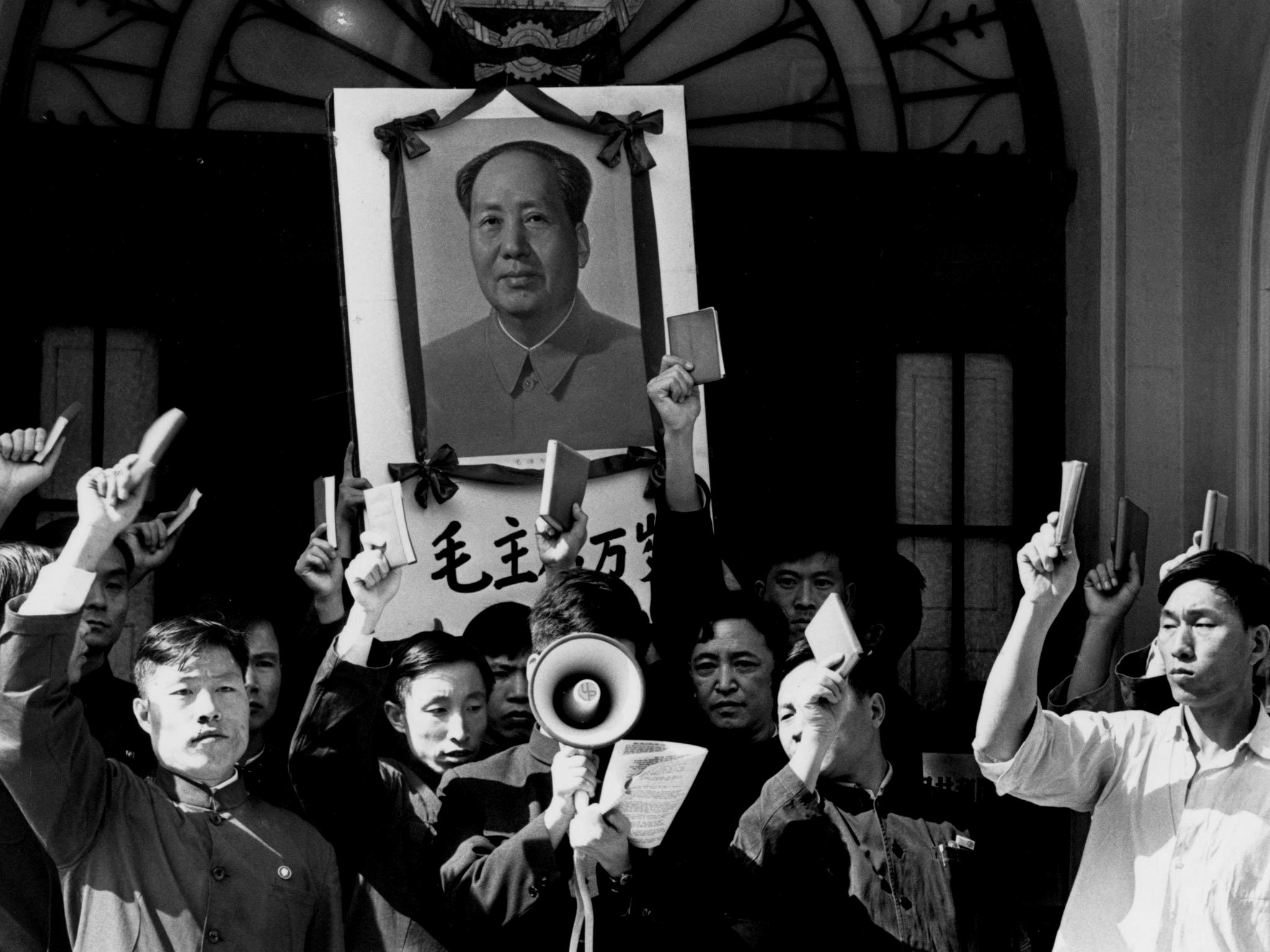London 'slavery' case: The Maoist past of 'Comrade Bala' and his wife, the couple suspected of holding three women against their will in Lambeth
‘If Mao was God, then he was the Pope’, says former activist who knew Aravindan Balakrishnan in the 1970s, when he was expelled from the Communist Party of England

Shortly after a police raid to close down his revolutionary political party in 1978, Aravindan Balakrishnan began disciplinary proceedings against three leadership rivals within the commune he presided over in a Brixton shop in south London adorned with a portrait of Chairman Mao.
The rivals were expelled and “Comrade Bala” – a well-known figure among ideologues battling for influence on Britain’s left-wing fringe in the 1970s – retained an iron grip on his grouping, the Workers’ Institute of Marxism-Leninism-Mao Zedong Thought.
An academic studying the methodologies of radical political groups at the time was struck by Mr Balakrishnan’s ability to persuade his followers to eject from their party anyone perceived as a threat to his leadership.
Professor Steve Rayner, of Oxford University, who studied the movement as a PhD student in 1979, concluded: “It is the power of a guru.” Or, as a former activist who knew Mr Balakrishnan and his followers, put it: “If Mao was God, then he was the Pope.”
Scotland Yard detectives are now investigating whether Mr Balakrishnan’s charismatic powers were deployed in exerting control of a more sinister kind, after he and his wife Chanda were revealed to be the couple arrested on suspicion of holding three women against their will for more than 30 years.
Two of the alleged victims – a 69-year-old Malaysian and a 57-year-old Irish woman, who is believed to be the mother of the third victim, a 30-year-old Briton – met “Comrade Bala” through what police have described as a “shared political ideology”.
Sources described the living arrangement, during which the women were allegedly only ever let out of their home if accompanied by one of the couple, as “cult-like”.
Police declined to comment on reports that concerns were previously raised with officers about the alternative lifestyle of the Balakrishnans and the education of the 30-year-old, who is alleged to have been raised in a form of modern-day slavery. But Mr Balakrishnan’s status in the capital’s febrile scene for revolutionary politics some 40 years ago, and the nature of his singular existence, became clear yesterday.
The 73-year-old, who along with his 67-year-old wife was arrested on suspicion of assault, false imprisonment and immigration offences following the release of three women, had become a senior member of the Communist Party of England (Marxist-Leninist) but was expelled in 1974.
A letter published by the party said it had thrown out Mr Balakrishnan and his “clique” because of “conspiratorial and splittist activities”.
It was a measure of Mr Balakrishnan’s revolutionary zeal that he in turn described the CPE (ML), dedicated to the violent overthrow of democratic government, as the “Communist Party of Elizabeth (Most Loyal)”.
Mr Balakrishnan and his wife went on to form the Workers’ Institute, a self-declared outpost of Chinese communism which eventually acquired a shop premises in Acre Lane, Brixton, and set itself up as the Mao Zedong Memorial Centre.
Inside the building, an atmosphere of increasingly fervent belief in the interpretations of Maoist “oracles” offered by Comrade Bala is alleged to have taken hold, including his forecast that China’s People’s Liberation Army would launch its revolutionary invasion of Britain by 1980. Visitors remarked that the organisation had a large number of female members. Mr Balakrishnan boasted at the time that “thousands of people” were attending the centre.
Professor Rayner said: “They were a tiny, very tight-knit group clearly under the spell of their leader. Their membership was overwhelmingly overseas in origin.
“Most were foreign students who seemed to have difficulty adjusting to life in the UK. They refused to recognise the legitimacy of the state and maintained a hostile attitude towards the establishment. Their ideology was profoundly detached from reality.”
A former activist, who writes the ProgContra blog, said of Mr Balakrishnan: “He was quiet, intense and incredibly paranoid. His immediate response was to suspect you of spying for the state or, worse, some other leftist group.
“This paranoia was common to all in his group. When I spoke to other people at the centre when Mr Balakrishnan wasn’t there, they were super paranoid – they seriously thought that policemen on the beat or fire engines going by were psychological warfare.”
The Acre Lane group was broken up in 1978 following a raid by police. It is understood the Balakrishnans were arrested on suspicion of assault of a police officer.
Police have said that their alleged captives suffered “physical and mental abuse” and have embarked on an investigation which could last many months. The Balakrishnans have been released on police bail until January.
* If you knew Aravindan and Chanda Balakrishnan during the 1970s or have any information about their subsequent activities, please email newseditor@independent.co.uk
